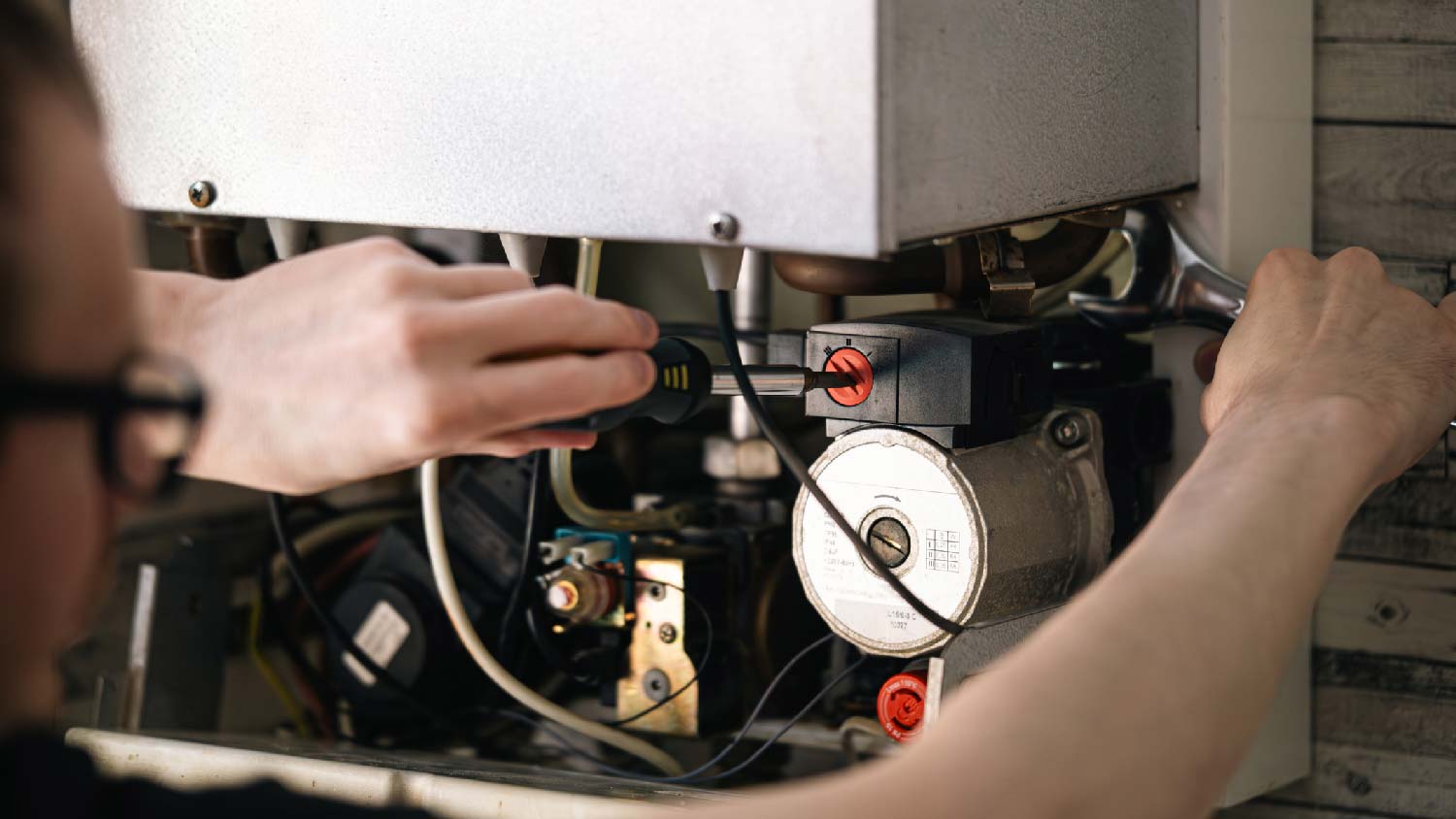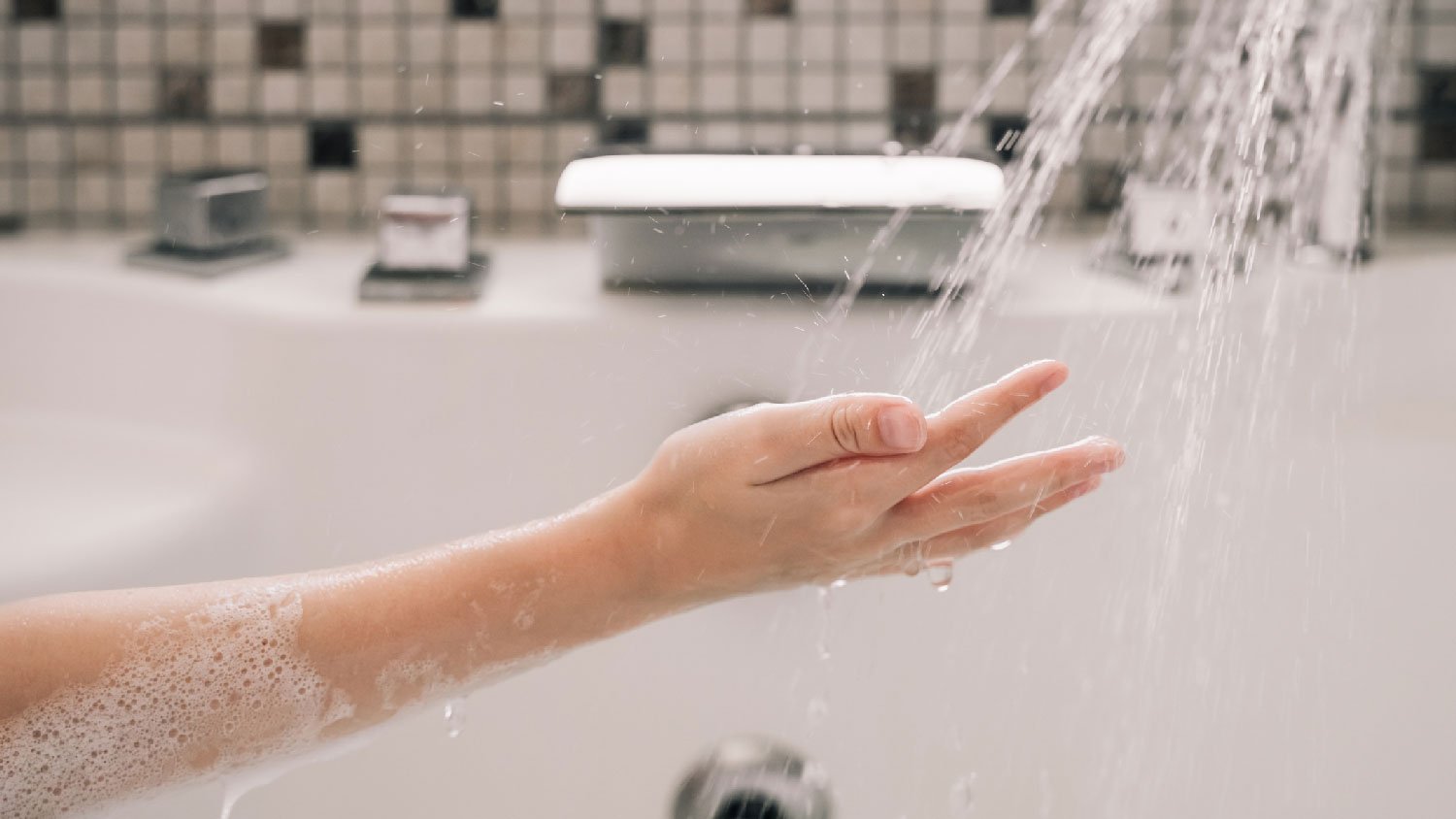Water Heater Not Heating? 6 Potential Causes and Solutions
Just say no to cold showers


An extinguished pilot light or faulty breaker can mean no hot water in your home.
Cold water can also mean there's a problem with the water heater itself.
A plumber or water heater repair pro can inspect your heater and fix it for you.
Water heater repair ranges from $220 to $985, on average.
No one wants to start their day with a cold shower or frigid water when it's time to wash the dishes. If your water heater's not heating, you want to get to the bottom of it—and the sooner, the better. Depending on the cause of your water heater problems, you may be facing a quick fix or need to replace the entire appliance. Here are six common reasons your water heater’s not heating, and what you can do about it.
1. The Breaker Has Tripped
If you have an electric water heater that's not heating, the cause can be something as simple as a tripped breaker. A breaker can trip for a few reasons, and it could be just a one-off occurrence. Resetting the breaker should restore hot water to your home.
How to Fix It
Head over to your home's breaker box and find the circuit that powers your water heater. If it's tripped, push it all the way to the "off" position, then flip it back on.
If the breaker keeps tripping and you find yourself visiting the breaker box regularly, it's a good idea to call an electrician to examine what's going on.
2. The Pilot Light Is Out
Many types of gas-powered water heaters have a pilot light that's continually lit. The light may go out for several reasons, such as if the gas supply is cut or if there's a problem with the thermocouple.
How to Fix It
If you notice that the pilot light is out, follow the steps on your water heater to reignite it. The resulting flame should be bright blue. A different color, such as red or yellow, can signal a problem with the heater and is a good reason to call a water heater repair professional.
The repair pro may recommend replacing the water heater's thermocouple or upgrading the heater, depending on its age and overall condition.
3. The Thermostat Is Broken
Your water heater's thermostat determines the temperature of the water that flows from your taps. In some cases, the thermostat can get out of sorts and is no longer able to detect the temperature correctly. It may think the water is piping hot when it's actually freezing cold.
It may also be that you've set the thermostat too low and the water just isn't hot enough for you. Try raising the temperature on the thermostat, waiting an hour, and testing the water to see if it's hot.
How to Fix It
Test your thermostat by raising it to a hotter temperature. If, after an hour, the water is still cold, that's a sign that the thermostat itself is broken.
Don't try to replace or fix a faulty thermostat yourself. Instead, call in a local water heater professional to inspect the appliance and make the fix for you.
4. The Heating Element is Broken
When the thermostat is broken, the heater can't tell what temperature the water is. When the heating element is on the fritz, the heater can't actually heat the water.
If you're getting a small amount of hot water from the heater, but it runs out before anyone can finish showering, the heating element may be to blame.
How to Fix It
Have a plumber or water heater repair pro look at your water heater. Depending on its age, they can either replace the heating element or recommend replacing the entire unit.
5. Demand Is Outpacing Supply

Size matters when it comes to water heaters. If your household is full of people who love to take long, hot showers, it may just be that your water heater can't keep up.
How to Fix It
If your household size has grown since you moved in and bought a water heater, it's most likely time to replace the heater with a larger model. A water heater pro or plumber can help you choose the right-sized water heater and can perform the replacement for you.
6. The Heater Is Old
Water heaters don't last forever. If you've had your heater for a while, it may start to show signs of failure, including water that doesn't get hot or an inconsistent water temperature. Your water heater may be on its last legs if it's making banging or other strange noises or if you notice that it's leaking.
How to Fix It
In this case, your best option is to say "out with the old and in with the new." Having a professional replace your water heater with a new model will give you hot water once again. As an added benefit, you will likely notice that your new heater is much more efficient than the older model, lowering your energy bills and helping you save money, too.
When to Call a Pro
In some cases, you can easily restore hot water on your own. Reigniting a burned-out pilot light or resetting a tripped breaker are both easy enough to do yourself.
But, if there's a more substantial problem with your water heater, such as a faulty thermostat or heating element or the heater is just plain old, your best bet is to bring in a professional. You want to make sure the problem is properly diagnosed and the right steps are taken to fix it. Water heater repair costs $220 to $985, though most people pay $600, on average.
Frequently Asked Questions
The average water heater, whether gas-powered or electric, has a lifespan of about 10 years. If your heater is that age or older and no longer gives you hot water, replacing it with a new one may be the most cost-effective option. Maintaining your new water heater will help ensure that it lasts another 10 years or even longer.
The average cost to replace a water heater is $1,325. How much your replacement heater costs depends on the type, size, and complexity of installation. Gas and electric heaters may cost a similar amount out of pocket, but one type may cost more to operate than the other, depending on the cost of utilities in your area.















